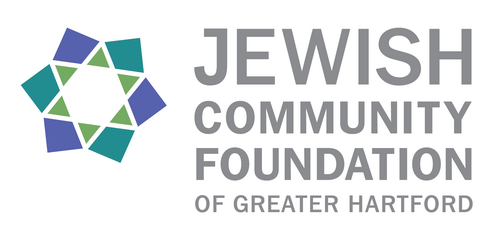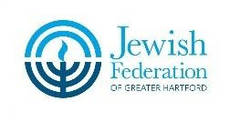Brit Milah
An Overview of the Brit Milah, or Ritual Circumcision
"...and on the eighth day shall the flesh of his foreskin be circumcised." (Leviticus 12:3)
This page page is designed to answer questions regarding Brit Milah. By understanding more about this tradition, we hope that your simcha (celebration) will be all the more joyous and rewarding. Please call or email Rabbi Adler with any and all questions.
With the birth of a child, parents are blessed to share in the process of creation; with the birth of a son, you have the opportunity to link your child with the destiny and hopes of our people by ushering him into the covenant of Abraham, to begin his life in the tradition of his ancestors. Brit Milah, more than any other ritual, is the ultimate affirmation of Jewish identity. Its performance is a declaration of faith; the act through which parents usher their son into the nation that has proudly survived the ravages of holocausts and the pressures of assimilation. A brit performed in compliance with Jewish tradition links the child to his brethren throughout the world. Properly planned, it will forever be a source of happy memories for your entire family and circle of friends.
Brit Milah FAQs
When does the Brit Milah take place? The brit ('bris’ in Yiddish) is usually performed on the eighth day after birth. Because Jewish tradition considers evening (after sunset) part of the next day, a boy born during the day on Monday would have his brit the following Monday but a boy born after sunset will have his brit on the following Tuesday. Even if the day is the Sabbath or a Jewish holiday the brit is performed, provided that Jewish law need not be violated.
If the child is born by cesarean section, or if for any reason the brit is postponed past the eighth day, then it may not be held on the Sabbath or a holiday. Brit Milah is never performed if it poses any danger to the infant. The doctor's advice to delay a brit is always heeded. In cases of severe illness, a delay of seven days following full recovery is required.
Can a doctor circumcise the baby at the hospital? Many doctors perform circumcision while the newborn is still in the hospital. However, Brit Milah is more than just a circumcision. Brit it is a significant Jewish ritual event that welcomes the newborn into the covenant of his people, surrounded by relatives and friends.
Who performs the Brit? Brit Milah is performed by a mohel, an individual who has medical training in the surgical and sterilization procedures for circumcision and who is an observant Jew. A mohel sees to your son’s physical and spiritual needs, guides your family in ritual and celebrates this momentous occasion with you.
How long does the Brit Milah take? Does it hurt the baby? The circumcision itself is very quick; many babies even sleep through it! The newborn may cry, but it is usually a sign of discomfort because his diaper was removed, not an indication of pain or suffering. The mohel, in cooperation with your baby’s pediatrician, will discuss ways to minimize baby’s discomfort during the procedure.
How do I plan a Brit Milah?
Before the Event: Decide who will be honored with certain roles at the brit. The most prestigious honor is that of sandek, holding the baby during the procedure. A second sandek can be appointed to give the baby wine or grape juice during the procedure (the sugar has an analgesic effect and helps calm the child). In many families this role is often given to the baby’s grandfather. The godparents, one male and one female (k’vater and k’vaterin, repectively), present the baby at the brit. More than one set of godparents may be chosen. Friends or relatives may be selected for this honor. Traditionally, a boy is officially named at his brit milah. Some families do not disclose the boy’s name, or refer to him by it, until the brit. The person who has the honor of holding the baby as he is named (often the child’s mother) is called the sandek m’umad.
The Brit Milah: A special chair is designated in the room where the ceremony is to take place. This chair is called the "seat of Elijah." It is advisable that kippot (skull caps) be available for guests who might want to relate to the ceremony with religious sanctity. After setting up his instruments, the mohel begins the ceremony by welcoming everyone and briefly explaining the historical context of the ceremony. The k’vater and k’vaterin carry the baby into the room. They either place the baby on the seat of Elijah or hand him to the person who has the honor.
As soon as the actual circumcision is complete, the Rabbi will bless a cup of wine and then liturgically sanctify the baby’s Jewish name. The ceremony often concludes with a group singing of “Siman Tov”.
It is traditional to welcome all guests to a light meal following the Brit Milah at which a special guest or relative might be offered the privilege of blessing the bread (“Hamotzei”). Known as a “Seudah Mitzvah”, a mitzvah meal, it allows the attendees to visit and further delight in the joy of the experience.
How Do I Choose a Name? Many parents choose to name their child after someone who led an admirable life, so that he might strive to emulate the ways of that person. Ashkenazi families often name their children for departed relatives. Sephardic families usually name their children in honor of living relatives. Names may be adapted from male to female and visa versa.
What is the Pidyon Haben? The pidyon haben is the Torah mitzvah of redeeming the first born male child of the mother on the thirty-first day of the child's life. If either the father or mother of the baby is the child of a kohayn or a levi, the baby is exempt from this ritual, as is a child born by cesarean section. The history of this mitzvah dates back to the days of the Jewish sojourn in ancient Egypt. Your rabbi, or Rabbi Adler, should be contacted for guidance in the fulfillment of this mitzvah.
RABBI YITZCHOK ADLER is the spiritual leader of Beth David Synagogue in West Hartford, Connecticut. He has performed brit milah for over 30 years. Endorsed by rabbis, doctors and hospitals from across the region, Rabbi Adler is happy to travel to bring this mitzvah and the warmth of Jewish tradition to Jewish families everywhere. Rabbi Adler can be reached at 860-236-1241 or Rabbi@bethdavidwh.org.







